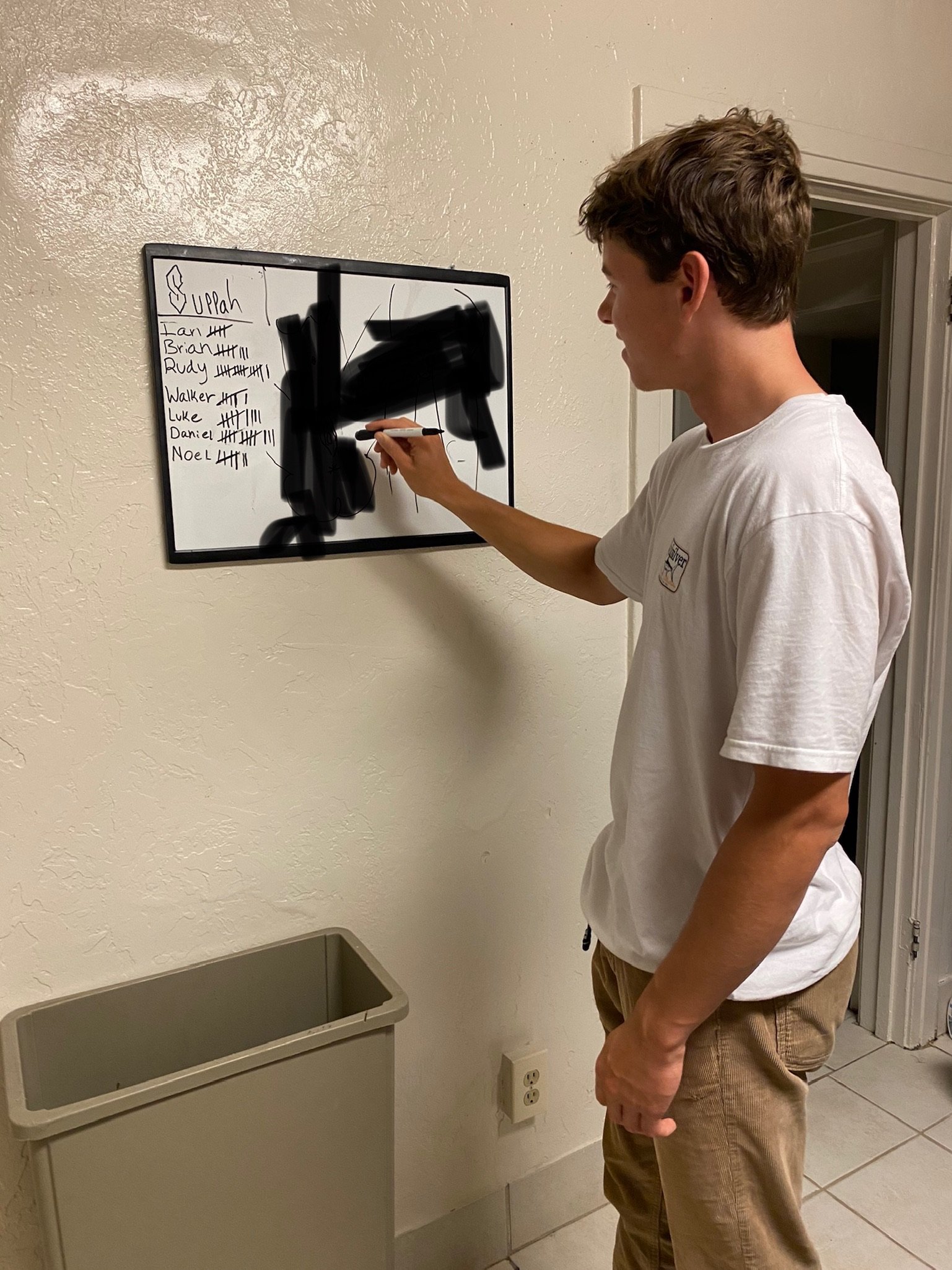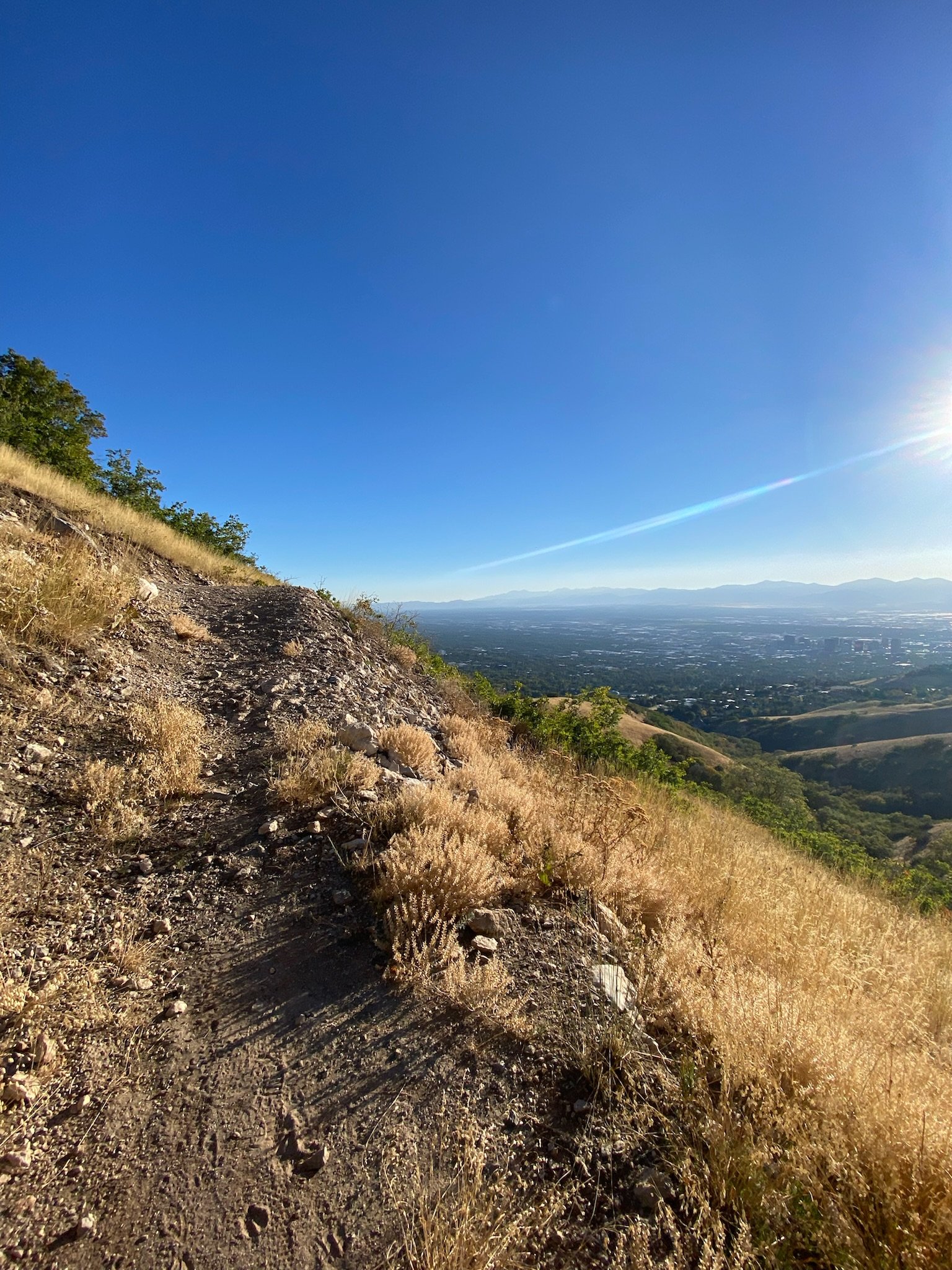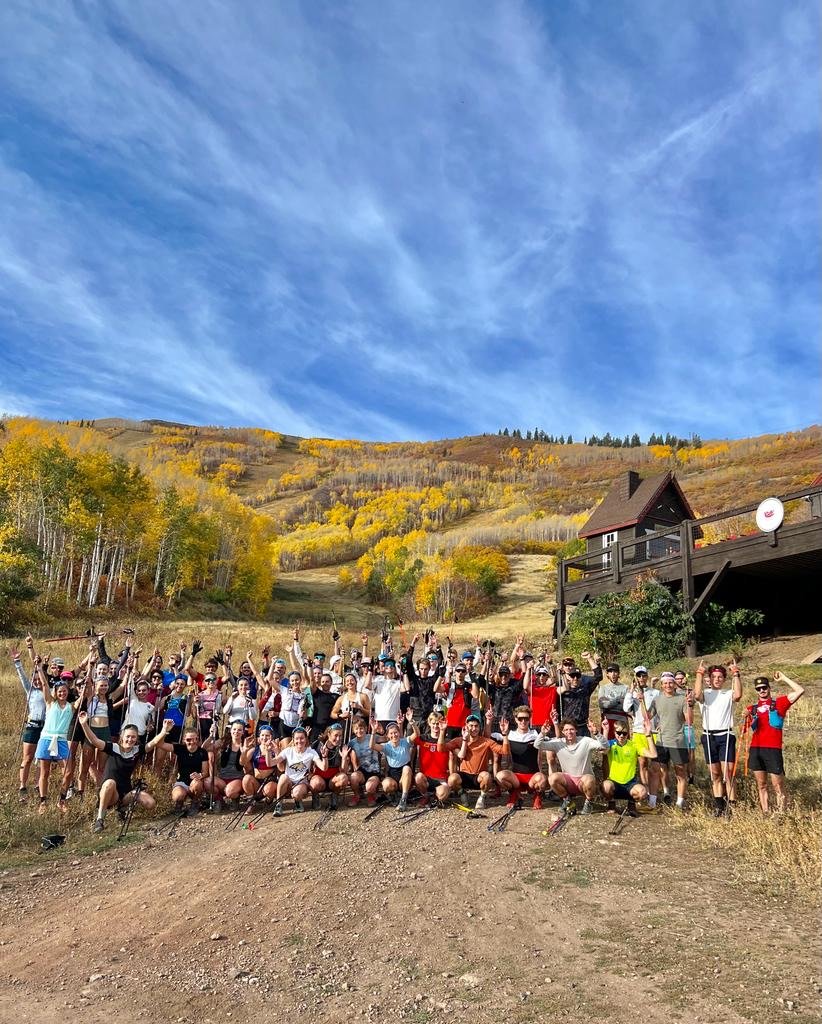I’m 2 weeks into camp at altitude in Utah. The first week I was in Salt Lake City living with my brother and some U.S. teammates (Luke Jager, Walker Hall, Bryan Bushey) to acclimate a little bit and hang out with my boys. I also wanted to get some extra time in thin air because lots of studies indicate the best stimulus from altitude comes with 3-4 weeks or more of exposure.
Some fun drawings at the college house
Gonna talk a little bit about my altitude training approach and process in this blog, so it’s not just a diary!
Running above SLC. Getting that sun!!
Got to go to my first big football game. Pretty crazy how big these are!
Altitude training is a method of improving aerobic capacity through your body’s natural production of red blood cells, and it has a lot of history in endurance sport. It is proven enough that athletes continue to use it with consistency, especially at higher levels or sport. A general recommendation is to spend 3-4 weeks living and training at around 5000-7000ft, and there are many nuances, but that is a basic outline. The only problem is that the training needs to be executed well to get the full effect.
Did some popping up to Park City to get up higher in my first week.
Also enjoying some great fall colors.
I’m now in my 2nd week in Park City, Utah (7000ft) doing an altitude training camp with the US Ski Team and many pro teams from across the United States. We come here to boost the oxygen-carrying capacity of our blood (and train together!) before the season gets underway. BUT, it’s possible to do more harm than good, and that’s why I make changes to my training routine to capitalize on this opportunity!
Skiing together <3
These are my top 4 things I focus on when at altitude camp.
Getting some mega-altitude with Scott and Matt (Guardsman Pass)
Train less
This is a general rule of thumb I follow when I come up to altitude, because it’s harder to recover, and training is more stressful overall. It doesn’t need to be a huge drop, but making sure to pay enough attention to how you feel after each session will help you not get overloaded. I’ve gotten too excited at this camp in the past and come home pretty wrecked, even at a similar amount of training that I’m used to at sea level. Now I really try to keep training on the safer side, in the hope to come home with good energy and the same blood boost that I’d get otherwise. There’s a lot more nuances to altitude training specifically besides training less, but they are not as important as simply managing your energy to keep the quality high.
Eat more
This goes along with training being more stressful. When it’s harder to train, making sure you get enough food is huge! Good food makes the recovery that much easier, and keeps you farther from that edge of overdoing it. This especially goes for long training sessions, where I make sure to eat a bunch of carbs throughout the workout.
Iron
Iron, or ferritin, is the body’s building block for red blood cells, so it’s really important you have enough stored to capitalize on the altitude stimulus. Before and during my altitude camp I always supplement with iron pills and make sure I’ve got some intake of red meat. It can also be a good idea to get your iron levels tested before going to altitude to understand what your needs are, and afterwards to make sure you’re still in a good place.
Take it slow
One of the hardest things to do when coming up to altitude is making sure you don’t go too fast. When you’re used to your easy speed at sea level, it’s hard to make a big change feel natural, but if you continue at your sea level pace, you’re gonna get smoked!! It helps to do some sessions with people that live at altitude, because they have that pace much more dialed.
This actually ends up being one of the most fun things for me at altitude for me, because you can really crawl! It’s so fun to be able to just walk hills and chill and still be in a good training zone. A good way to keep it in check is to make sure you’re able to comfortably talk.
Keeping it easy.
Thanks for reading, and if you're interested in altitude training, I'd say maybe do a little more research, because I am not an expert; these are just from my experiences. People who live at altitude might think I'm totally wrong, but also this is geared more towards the sea level dweller who takes a trip out west. Whoever you are, I hope you got something out of this and maybe have some more guidance if you plan to go to altitude in the future!
Getting some great team training. With Zak Ketterson on this one. (L3 classic/skate intervals at soldier hollow)
JC, rollin in to aprés time
Bounding with a huge crew! This is USST, NEG/NTG (junior camp), Team Birkie, BSF Pro, APU, SMS T2, University of Utah, and more teams all coming together to work together. USA has some great momentum!
Media day with a sharp-lookin team!
Next post is gonna show some of the new Kappa US Ski Team gear…it’s drippy.











